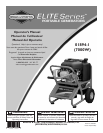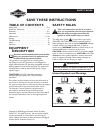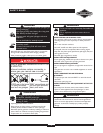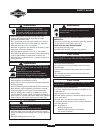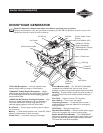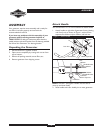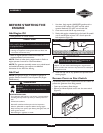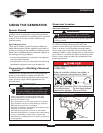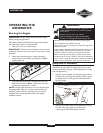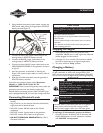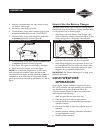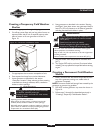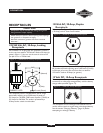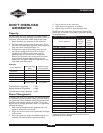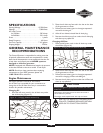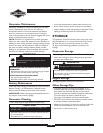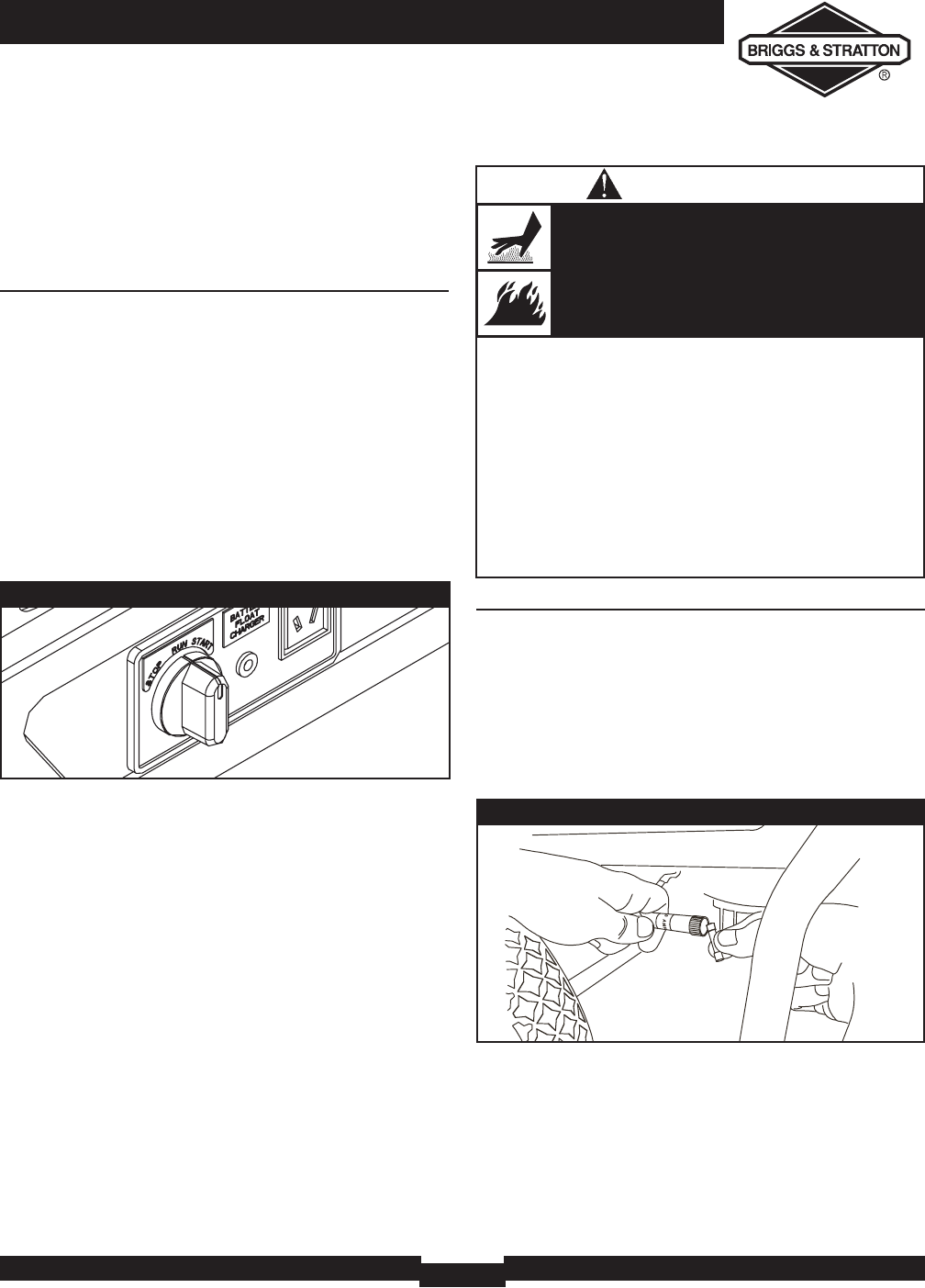
9
OPERATION
OPERATING THE
GENERATOR
Starting the Engine
IMPORTANT: Always unplug the battery float charger
before starting the generator.
Disconnect all electrical loads from the generator. Follow
start instruction steps in numerical order:
1. Make sure unit is on a level surface.
IMPORTANT: Failure to start and operate unit on a level
surface will cause the unit not to start or shut down during
operation.
2. Follow start instructions given in engine operator’s
manual and turn start switch on generator to “Start”
position (Figure 5).
To prolong the life of starter components, DO NOT
hold starter switch in “Start” position for more than
15 seconds, and pause for 1 minute.
NOTE: If engine starts but fails to run, or if unit shuts down
during operation, make sure unit is on a level surface and
check for proper oil level in crankcase.This unit may be
equipped with a low oil protection device. See engine
operator’s manual.
Jump Start Procedure
If the generator’s starting battery fails, use the following
instructions to jump start your generator.You can jump
start the generator using any 12 Volt automotive or utility
style storage battery.
1. Unscrew the fuse holder and remove the generator’s
10 Amp in-line fuse (Figure 6).Verify the fuse is good
or replace with a known good fuse. Reinstall fuse in
the fuse holder.
2. Slide the red rubber boot off the generator’s battery
terminal and push it onto the red wire, thus
uncovering the POSITIVE battery terminal.
Figure 6 — In-Line Fuse
Figure 5 — Starter Switch
• DO NOT touch hot surfaces and avoid hot exhaust gases.
• Allow equipment to cool before touching.
• Keep at least 5 ft. (152 cm) clearance on all sides of generator
including overhead.
• Code of Federal Regulation (CFR) Title 36 Parks, Forests, and
Public Property require equipment powered by an internal
combustion engine to have a spark arrester, maintained in
effective working order, complying to USDA Forest service
standard 5100-1C or later revision. In the State of California a
spark arrester is required under section 4442 of the California
Public resources code. Other states may have similar laws.
Running engines produce heat.Temperature of
muffler and nearby areas can reach or exceed
150°F (65°C).
Severe burns can occur on contact.
Exhaust heat/gases can ignite combustibles,
structures or damage fuel tank causing a fire.
WARNING



